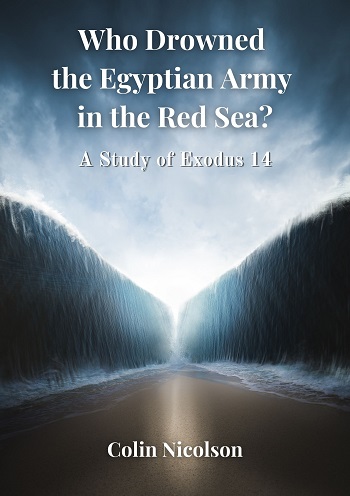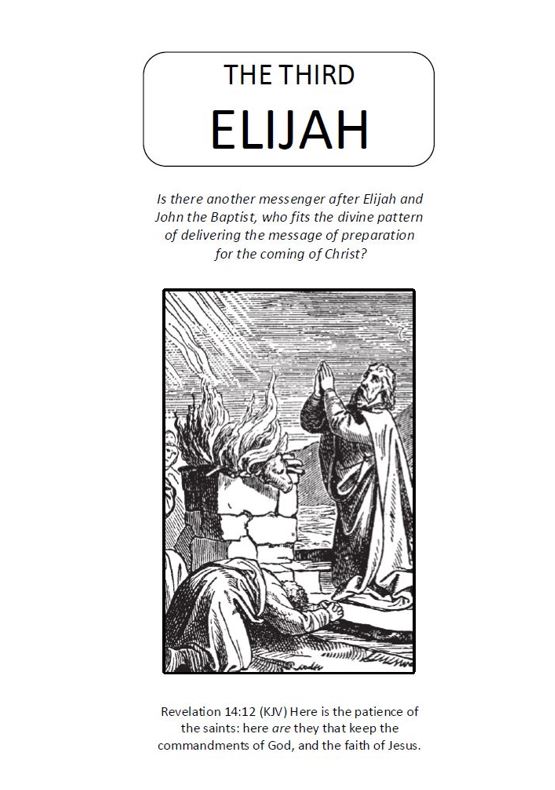2021 Thoughts and Christ’s Suffering in His Permission
Recently Jonathan Otto was encouraging me to make short videos regarding the Character of God. I have had the thought too that we need waypoints, where we can anchor in, making our belief in God’s character more secure and stable. What would it be? What was crucial for me?
Daniel Chang, Jon O’s friend, made a short clip for Tiktok where he shared the exact two stories that were so influential to me: Saul in 1 Chronicles 10 and Jesus responding to the request from the disciples to call down fire in Luke 9.
The first story regarding Saul is one of the crucial points in Light on the Dark Side of God by Marilyn Campbell and also Dejan Andov’s seminal article (now booklet) on Satan as the Destroyer.
In 1 Chronicles 10:14 it says that God killed Saul:
So Saul died because he was unfaithful to the Lord. He failed to obey the Lord’s command, and he even consulted a medium instead of asking the Lord for guidance. So the Lord killed him and turned the kingdom over to David son of Jesse. (NLT)
But in verse 4 it says that Saul killed himself:
Saul groaned to his armor bearer, “Take your sword and kill me before these pagan Philistines come to taunt and torture me.” But his armor bearer was afraid and would not do it. So Saul took his own sword and fell on it.
This opened up a whole new paradigm to understand God’s relationship to the events in our world. If Saul killing himself can be written in scripture as God killing him… then how would we distinguish if God directly killed someone? What language would God use, when the language of seeming direct cause – God killed Saul – has an alternate cause, and God is doing it indirectly? Does God then ever do it directly? How could we know?
This comes to an extremely important concept to understand. This is connected to Psalm 78:49, which I think for many of us has become an important verse. Sent = released.
He loosed on them his fierce anger—
all his fury, rage, and hostility.
He dispatched against them
a band of destroying angels.(Psalm 78:49 NLT. ‘dispatched’ or ‘sent’ can be translated ‘released’)
Adam Clarke’s commentary on the second verse below has become hugely significant to me to understand this principle, sometimes called Divine Recession (as in receding, or withdrawal)
And whenever the tormenting spirit from God troubled Saul, David would play the harp. Then Saul would feel better, and the tormenting spirit would go away. (1 Samuel 16:23 NLT)
“So you see, the Lord has put a lying spirit in the mouths of all your prophets. For the Lord has pronounced your doom.” (1 Kings 22:23 NLT)
Does Jesus send evil spirits to lie and torment people? Does He command the evil things evil spirits do? Clarke explains it thus:
“He hath permitted or suffered a lying spirit to influence thy prophets. Is it requisite again to remind the reader that the Scriptures repeatedly represent God as doing what, in the course of his providence, he only permits or suffers to be done? Nothing can be done in heaven, in earth, or hell, but either by his immediate energy or permission. This is the reason why the Scripture speaks as above.” [italics in original commentary on 1 Kings 22:23]
The scriptures repeatedly represent God as doing that which he only permits. Nothing can be done except by his energy or permission. This is a massive idea, and is hugely connected to Identity Wars and Life Matters principle of life source and power source.
|
Model 1 Man has an inherent life source (the divine) that originates within himself. MAN IS DIVINE |
Model 2 Man is given a life source by God (the divine) that he possesses within himself. MAN IS IMMORTAL |
Model 3 Man receives life through a relationship with God (the divine) outside of himself. MAN IS MORTAL |
This can be read in the Duracell chapter of Identity Wars, and here is a graphic from Life Matters that helps portray this concept:
The truth is in the third (furthest to the right); that we are always dependent on God every second of every day to keep our heart breathing. The seeds don’t grow of man’s watering, but because God gives power (Spiritually explained here: "I planted the seed in your hearts, and Apollos watered it, but it was God who made it grow." 1 Cor 3:6). To men, this power to live life is given with free will to allow us a probation time of whether we will decide to live with God, accepting His gift of life, and thus living forever; or reject God, and thus die. This concept is articulated in so many ways in so much our material, like in the Acts of our Gentle God chapter on ‘Our Life Source.’ It even comes out in my booklet The Common Language.
This is all familiar ground with most people reading. What I want to make clear here is how this is connected to Christ’s suffering. Amazingly, this is shown in the translation of the word permit in the KJV also. As Clarke said:
He hath permitted or suffered a lying spirit to influence thy prophets.
The first time the word ‘suffer’ occurs in the KJV is in the 10th plague of the death of the firstborn at Passover:
Exo_12:23 For the LORD will pass through to smite the Egyptians; and when he seeth the blood upon the lintel, and on the two side posts, the LORD will pass over the door, and will not suffer the destroyer to come in unto your houses to smite you.
In the Passover, the blood of the lamb represents the blood of Christ, which is His life. We have the choice of whether we want to follow God, through His Son, and thus be connected to life - and thereby we allow God to protect us. The decision is ours to make; God will not force His protection. Egypt had rejected Christ over and over, and according to free will God must give them over to Satan; He must suffer, or permit, Satan to do as He pleases. And we know what pleases Satan: "The thief comes only to steal and kill and destroy; I have come that they may have life, and have it to the full" (John 10:10). We need not be shocked that Satan would kill his own followers; Satan comes "ONLY to steal, kill, and destroy."
God permits this, just as he permits men to commit suicide. If humans think life so miserable that they choose death, after God has pleaded with them to see things a different way, God will not force men to live. "But he that sinneth against me wrongeth his own soul: all they that hate me love death" (Proverbs 8:36). It hurts God to have to permit Satan to kill his beloved children. It pains God that men "will not come to Him, that we might have life" (John 5:40). God literally suffers whenever He permits things that go against His will, because He knows that whatever is not according to His will leaves to suffering and death.
How can this be? The word sin in Hebrew means to miss the target, or to fail to reach the goal. The goal here would be God’s will. God’s will is goodness and life, and is manifested in His law, which only Christ can perform perfectly because only He has perfect love for His Father and His law. To do the will of God is to be blessed, to walk in righteousness. To not do His will is to sin, to miss the mark, the consequences of which are disorder, malfunction, confusion, darkness – to be cursed. The blessings and curses are in the obedience or disobedience itself; just like the blessing of not smoking is intrinsic to the act: no cancer, no hurt lungs, hanging out with non-smokers who are more likely to be a good influence (at least health-wise), etc. (I recommend watching Bible Project videos on ‘sin’ and ‘transgression’)
The blessings and curses of Deuteronomy 28, connected to the law, are not arbitrarily handed out byGod to those He is pleased with or displeased with based on tests of loyalty. This leads to such erroneous thinking such as if I study the Bible and pray, I may get lucky and find a lump of money on the road. God doesn’t want us to think magically and mystically, as if we are in the dark ages. Through the health message as a channel He wants us to understand cause and effect in spiritual terms.
This is the science of salvation Ellen White talks about:
The science of overcoming as Christ overcame is the science of salvation. If we will unite with Christ in the work of developing Christian character, if we will maintain unwavering faith in God and in the truths of his Word, we shall be given strength to overcome every evil thing in the life. (RH Sept 30, 1909)
The science of salvation is a grand theme, and all the glory of restoring the image of God in man is to be laid at the feet of the Eternal. Holy angels have left the royal courts, and have come down to earth to encamp in the valleys in chariots of fire, a vast army, not to despise, not to rule, or require man to worship them, but to minister unto those who shall be heirs of salvation. (ST Jan 15, 1894)
At its heart, the “science of salvation” is to restore the image of God in man. To do so requires us to know His character, and thereby to understand His will. His will is the manifestation of His character. That is why we are entreated that “this is eternal life, that they might know Thee" (not YOU, which would be plural, but THEE = singular. Singular you vs plural you is a distinction in Hebrew and Greek that has been lost in Modern English. See an article on this here)
We see how the health message is a channel, through its clarity in cause and effect, into understanding the gospel message, where cause and effect are harder to discern.
Parents, teach your children to reason from cause to effect. Show them that if they violate the laws of health, they must pay the penalty by suffering. Show them that recklessness in regard to bodily health tends to recklessness in morals. (RH July 29, 1902)
When we do damage to our bodies, it causes Christ to suffer. This is clearly stated by Matthew quoting Isaiah 53:4 not regarding Gethsemane, but about Christ healing the people, which actually talks about Christ abosrbing our sicknesses into Himself.
And evening having come, they brought to him many demoniacs, and he did cast out the spirits with a word, and did heal all who were ill, that it might be fulfilled that was spoken through Isaiah the prophet, saying, ‘Himself took our infirmities, and the sicknesses he did bear.’ (Matthew 8:16-17 YLT)
Surely our sicknesses he hath borne, And our pains -- he hath carried them, And we -- we have esteemed him plagued, Smitten of God, and afflicted. (Isaiah 53:4 YLT)
The Jews thought Jesus was plagued of God, just as we thought the Egyptians were plagued of God, and just like most of the world will think the 7 last plagues are coming from God. But in actuality Christ is plagued with His people, having suffered/permitted us the consequences of our actions.
Christ feels the woes of every sufferer. When evil spirits rend a human frame, Christ feels the curse. When fever is burning up the life current, He feels the agony. {DA 823.4}
When we mankind split ourselves off from Christ, we became self-destructive and estranged children. Parents know the feeling of watching their children think and act in ways that hurt themselves and those around them, and it pains them that they must permit it and walk with them. But parents do it, with the hope that one day they will recognize the error of their ways and change. So it is with God.
But God’s responsibility is even more intense, because He is actually giving the power and life for men to do evil acts. Parents may give money and shelter to their kids, but they are not actually giving life force to their children – in that sense there is an independence between a child and their parents that is not there with God. God is always with His human children. He is connected in spirit, through His breath; He is always carrying baring men all the days of old (Isiah 63:9). How terrible the responsibility! To give life and to have to always watch sinful humans inflict damage on themselves and others. Most parents don’t know what evil their children are getting up to, but God sees it all. Our sin, our breaking of the law, has consequences we cannot fully comprehend.
That is why Jesus says this of the law:
“So if you ignore the least commandment and teach others to do the same, you will be called the least in the Kingdom of Heaven. But anyone who obeys God’s laws and teaches them will be called great in the Kingdom of Heaven.” (Matt 5:19)
Christ wants us to have greater, more exalted ideas of God’s law ("Except our righteousness abound more than the pharisees..." Matt 5:20). He wants us to see fully its perfection and beauty, and that is good in every sense for us, and thereby we would willingly and lovingly submit ourselves to it and to the character of the Father that it represents. We can never ever do that except through seeing the law through Jesus’s eyes. And that is what He hopes we will decide to do… but until that final decision is made, Christ has to deal with an alternate spirit that corrupts the humans that Christ is constantly giving life too. This is portrayed in the 2nd story mentioned in Daniel Chang's Tiktok video:
54 And when his disciples James and John saw this, they said, “Lord, wilt thou that we command fire to come down from heaven, and consume them, even as Elias did?”
55 But he turned, and rebuked them, and said, “Ye know not what manner of spirit ye are of. For the Son of man is not come to destroy men's lives, but to save them.” (Luke 9:54-56)
Christ’s spirit is working on the disciples’ conscience, like He works on every man, but alongside Christ’s spirit is another spirit – that of His adversary, Satan, whose spirit is full of hate and malice towards all of God’s children, their God, and most especially the Son of God. How close is Jesus to us?
The word is nigh thee, even in thy mouth, and in thy heart (Romans 10:8)
And if Christ is that close, how close is Satan to Him? Because of free will, Christ permits Satan to rule our lives, because us humans have chosen Satan by believing His perception of the Father and His understanding of justice (See the book As You Judge). Christ suffers Satan to have control over this world, and He permits/suffers Satan to attack, torture, libel, slander, kick, pierce Him everyday in the thoughts of His human children who are influenced by the Spirit of Satan against the Spirit of Christ.
Hereafter I will not talk much with you: for the prince of this world cometh [Satan], and hath nothing in me. But that the world may know that I love the Father; and as the Father gave me commandment, even so I do. Arise, let us go hence. (John 14:30-31)
Christ, in becoming our redeemer and giving us a probation time, has bound himself to the human race and thus, in a sense, has bound Himself to Satan, who rules over our flesh. Every human that dies unsaved and unredeemed has crucified Christ in himself, and Satan gloats over it. Christ gives each man a taste of His cross so that they can realize how far they have fallen, and turn/repent, but instead they see their suffering and hardship as coming from Christ; rather than Christ carrying it and sharing it in smaller pieces with the hope that they will realize how loved they are.
What a terrible situation to be in. The depression, guilt, and pain we feel is only a fraction of what we actually should have! Without a mediator ensuring that God loves us, our spiritual self-hate would completely overwhelm us. Christ allows us to have little dark nights of the soul (which are nothing compared to His 6000 years of baring the race) happen to us to let us taste in the burden of what Christ carries, but instead we declare God a terrible creator, who doesn’t help us, and has forsaken us!
And he is pierced for our transgressions, Bruised for our iniquities, The chastisement of our peace is on him, And by his bruise there is healing to us. (Isaiah 53:5 YLT)
Just as the health message is a channel into the gospel, so is the physical pain of Christ a channel into the spiritual pain of Christ.
It is interesting that when I shared this with an elderly friend of mine, I told Him that Jesus is “taking our sins upon Him.” He replied and said “No, He TOOK our sins upon Him. To say that Christ is suffering today is a Catholic teaching of the mass." How devious Satan is!! How he twists and turns us in his games!
There are a few places that talk in scriptures about Jesus dying once in the flesh (1 Peter 3:18). This we accept also, of course; it is the visible manifestation in the divine pattern. There is a verse that explains this pattern, but because of the hardness of our heart we have understood it to mean precisely the opposite of what Paul meant! That is Hebrews 9:25-26; a verse probably on my elderly friend's mind.. Here it is in the International Standard Version:
Nor did He go into heaven to sacrifice Himself again and again, the way the high priest goes into the Holy place every year with blood that is not his own. Then he would have had to suffer repeatedly since the creation of the world. But now, at the end of the ages, he has appeared once for all to remove sin by his sacrifice. (Hebrews 9:25-26 ISV)
Jesus suffering repeatedly is connected to the priest going into the Holy place every year, which is thought to be wrong and would mean He sacrificed Himself "again and again." But is this what the verse is saying? We have a sense of something more in the word "appeared", which is actually "manifested", a word that should bring up a signal that we should dig deeper. Manifested suggests a visible, physical revelation of a spiritual truth, something that should be clear from our study on the covenants (see also Faith Journey). See these verses in the YLT:
Nor that He may many times offer Himself, even as the chief priest doth enter into the holy places every year with blood of others; since it had behoved him many times to suffer from the foundation of the world, but now once, at the full end of the ages, for putting away of sin through his sacrifice, he hath been manifested... (Heb 9:25-26 YLT)
Christ offered Himself once at the beginning of the world, when sin originated, and that offering "manifested" 2000 years ago. The point is not to say that He didn't suffer many times but that He did! "Since it (Seeing it) had behoved him (was necessary for him) many times to suffer from the foundation of the world, but now once, at the full end of the ages, for putting away of sin through his sacrifice, he hath been manifested."
Christ has been suffering "many times" from the foundation of the world, but now He will manifest Himself (and His experience of suffering) visibly once. His sacrifice is not like the sacrifice of the priest that is given and then completed where the victim's suffering is brief; Christ's sacrifice is one where He is a perpetual victim of continual suffering. Actually the KJV can be interpreted this way, though I couldn't see it, but Adam Clarke saw it:
"For then must He often have suffered"] In the counsel of God, Christ was considered the "lamb slain from the foundation of the world" (Revelation 13:8), so that all believers before his advent were equally interested in his sacrificial death with those who have lived since his coming. Humanly speaking, the virtue of the annual atonement could not last long, and must be repeated; Christ's sacrifice is ever the same; His life's blood is still considered as in the act of being continually poured out. (See Revelation 5:6)
His linking this thought to Revelation 5:6 is interesting. I was reading Reveation 5 and wondering why "no man.. was able to open the book, neither to look thereon." Why only Christ? How did he "overcome to open the book?"
We see how in verse 6:
and I saw, and lo, in the midst of the throne, and of the four living creatures, and in the midst of the elders, a Lamb hath stood as it had been slain, having seven horns and seven eyes, which are the Seven Spirits of God, which are sent to all the earth... (He stands as he had been slain)
His dying daily to self (to carry humanity since the fall) is how He overcomes ("Take up your cross and deny yourself" Matthew 16:24), and his suffering is how he has eyes to see everything on the world. Of this verse Clarke says:
As it had been slain] As if now in the act of being offered. This is very remarkable; so important is the sacrificial offering of Christ in the sight of God that He is still represented as being the very act of pouring out His blood for the offences of man.
Through recognition of Christ's great agape love in His sacrifice for us, in seeing all the suffering in the world as being borne to a greater extent by Christ, we will die to self.
Then shall the righteous answer him, saying, Lord, when saw we thee an hungred, and fed thee? or thirsty, and gave thee drink? When saw we thee a stranger, and took thee in? or naked, and clothed thee? Or when saw we thee sick, or in prison, and came unto thee? And the King shall answer and say unto them, Verily I say unto you, Inasmuch as ye have done it unto one of the least of these my brethren, ye have done it unto me.
By making the connection between our suffering, the world's suffering, and Christ's suffering, to our sanctification, we find the key to overcoming sin. We become sickened by our own selfishness, and through death to self come to life and peace. We lose interest in the fading glories of this world, and gain more clarity into the beautiful glory of our Saviour. Thus Christ delivers "them who through fear of death were all their lifetime subject to bondage." (Hebrews 2:15)
The Author of their salvation through sufferings to make perfect, for noth He who is sanctifying and those sanctified are all of one, for which cause He is not ashamed to call them brethren, saying, 'I will declare Thy name to my Brethren, in the midst of an assembly I will sing praise to Thee;' and again, 'I will be trusting on Him;' and again, 'Behold I and the children that God did give to me.'
Jesus help us to understand and empathize what it is you are going through to keep this fallen world going. Give us your eyes that we may have your agape love for others, to see eternity behind that which is fading away.
That I may know him, and the power of his resurrection, and the fellowship of his sufferings, being made conformable unto his death (Phi 3:10)
Through seeing His suffering for us we see His character, which is the key to resurrection!
But rejoice, inasmuch as ye are partakers of Christ's sufferings; that, when his glory shall be revealed, ye may be glad also with exceeding joy. (1 Peter 4:13)
Our willingness and joy in suffering with our Lord is the process through which His glory of character is revealed to us, and imparted to us!
For as the sufferings of Christ abound in us, so our consolation also aboundeth by Christ. (2 Cor 1:5)
When we suffer, let us remember the Christ suffers more, for He is only giving us a part of the full consequence of sin. And if God knows that His Son can bare it, so He knows that we can bare it with His Son, and let us be consoled that we are not alone.
Forasmuch then as Christ hath suffered for us in the flesh, arm yourselves likewise with the same mind: for he that hath suffered in the flesh hath ceased from (is done with) sin; That he no longer should live the rest of his time in the flesh to the lusts of men, but to the will of God. (1 Peter 4:1-2)
If we realize that our suffering in the flesh is what Christ is experiencing, then we will be done with sin. We will have no part any longer in it, we have broken free from its chains. We no longer live for ourself, and instead glory in the will of God.
Finally, Ellen White expresses this thought beautifully in this way, in her article "Lessons From the First Chapter of Revelation" from 1903:
Banished to the solitudes of the Isle of Patmos, John was favored with the presence of Jesus Christ. How comforting are the words of the aged apostle as he wrote to the churches of his Saviour! “Unto Him that loved us, and washed us from our sins in His own blood, and hath made us kings and priests unto God and His Father; to Him be glory and dominion forever and ever.”
“Behold, He cometh with clouds; and every eye shall see Him, and they also which pierced Him; and all kindreds of the earth shall wail because of him.” Whether we be saved or lost, we shall sometime see the Saviour as he is, in all His glory, and shall understand His character. At His second coming, conviction will be brought to every heart (we will realize what we He has done for us, and that we have denied that truth to ourselves). Those who have turned from Him to the trivial things of this earth, seeking selfish interests and worldly honor, will in the day of His coming acknowledge their mistake. These are the ones spoken of by the Revelator as “all kindreds of the earth,” who “shall wail because of Him.” Let us not be content to be numbered among the “kindreds of the earth.” Remembering that our citizenship is in heaven, let us lay hold on the hope set before us in the Gospel.
“And they also which pierced Him.” These words apply not only to the men who pierced Christ when He hung on the cross of Calvary, but to those who by evil-speaking and wrong-doing are piercing Him today. Daily He suffers the agonies of the crucifixion. Daily men and women are piercing Him by dishonoring Him, by refusing to do His will.
The Lord desires us to be men and women in Christ Jesus. Our natural dispositions are to be softened and subdued by His grace. Then we shall not be continually crucifying Him afresh. Our Saviour lived on this earth a perfect life. He is our Example. If we now follow Him, doing His will in all things, we shall in the world to come live with Him forever. Let us keep Him constantly in view. It should be our life-purpose to glorify Christ. This is the great purpose that has inspired Christians in every age. It is by cherishing this purpose that we make sure of eternal salvation. Let us learn to know Him whom to know aright is peace and joy and life everlasting.
God bless and happy 2021.





